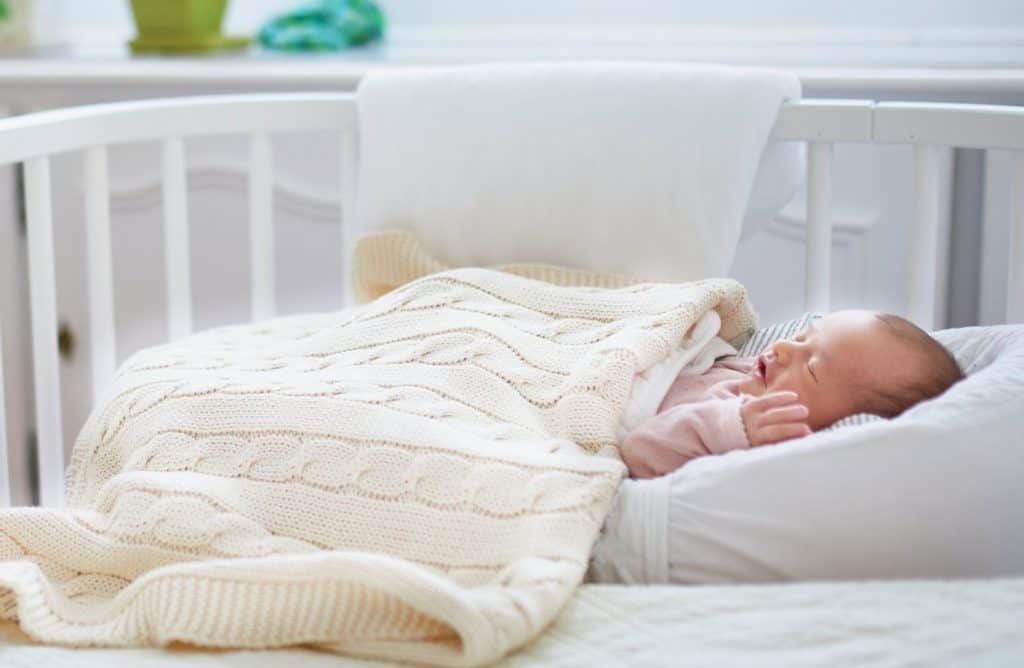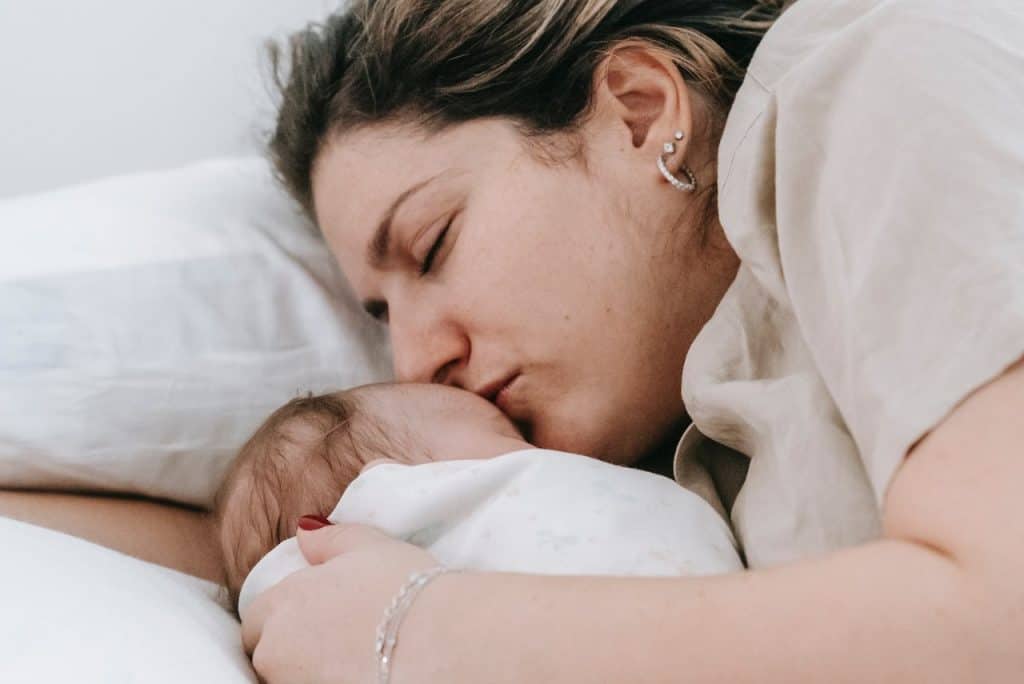Bringing a newborn home is an exciting and wonderful experience, but it can also be a bit overwhelming if you’re not sure what to expect. But with the right information and tools, you can enjoy this special time with your little one and avoid exhaustion.
One of the most common problems new parents face is a baby not sleeping the first night at home. It’s important to understand the factors that can affect a newborn’s sleep and the strategies you can use to promote restful sleep and help your baby adjust to his new environment.
Sleep deprivation can make everything else feel more difficult and can also negatively affect your mood, mental health, and overall well-being. By taking steps to promote good sleep habits from the start, you can set your baby up for a lifetime of healthy sleep.
Tips to Help Your Baby Sleep on Its First Night Home from the Hospital
Newborns can be a little sensitive to all the new sights, sounds, and sensations in the outside world. That’s because they’re used to being snug and cozy in the womb, where things are all nice and constant. So, when you bring them to a new and unfamiliar place, it’s totally normal for them to have some trouble sleeping.
The first night home from the hospital can be especially challenging, both for the baby and for new parents. But don’t worry, there are some great strategies you can use to promote a peaceful, restful night’s sleep for everyone. With a little patience and some helpful tips, you can all settle into a new routine and start getting some much-needed rest.
1. Using a Bassinet or Crib for Sleeping

It’s important to use a bassinet or crib for your baby’s sleep rather than a couch or bed. According to the American Academy of Pediatrics (AAP), this can help prevent accidental suffocation or Sudden Infant Death Syndrome (SIDS).
Therefore, make sure that your baby’s sleep surface is firm and flat, with no soft objects or loose bedding. You can also consider using a sleep sack instead of a loose blanket.
2. Avoiding Over-Stimulating Activities Before Bedtime
If your baby won’t sleep after its first night home from the hospital, you should remember that babies can easily become overstimulated, which can make it harder for them to fall asleep. As such, it would be better for you to avoid playing with your baby too much before bedtime. Too much activity will just make them feel more awake and alert.
3. Keeping Daytime and Nighttime Sleep Separate
It is important to keep daytime and nighttime sleep separate to help your baby adjust to a regular sleep schedule after the first night home from the hospital. During the day, it is fine to keep your baby in a well-lit and active environment. But at night, it would be a lot better if you made sure to keep the lights low and the environment quiet to help your baby understand that it’s time to sleep.
4. Creating a Calm and Quiet Environment
As a parent, one of the most important things you can do to help your baby sleep is to create a calm and quiet environment. This means that you have to minimize the noise and light around them. Ensuring that the temperature is comfortable would also help a lot. Blackout curtains or a white noise machine can also be used to create a more soothing environment for your child.
5. Swaddling for Comfort and Security

Swaddling can be an effective way to help your baby feel safe and secure, especially on its first night home from the hospital. Wrapping up a baby in a breathable blanket mimics the feeling of being in the womb, so it calms them down and makes them fall asleep faster.
It can also help prevent the startle reflex, which can cause your baby to wake up. When swaddling your baby, make sure that the blanket is snug but not too tight and that the baby’s hips and legs have room to move.
6. Feeding and Changing Your Baby Before Bedtime
A hungry or wet baby is unlikely to sleep well, so make sure to feed and change your baby before putting them down for the night. This can help your baby feel more comfortable and relaxed, and it can also prevent them from waking up hungry or uncomfortable in the middle of the night.
7. Using White Noise or Soothing Sounds
White noise or other soothing sounds, such as lullabies or nature sounds, can be a helpful way to create a calming environment for your baby. These sounds can help drown out external noises and promote relaxation. You can do this by using a white noise machine or downloading an app that plays soothing sounds.
8. Holding and Cuddling Your Baby to Promote Relaxation
Babies often feel most secure and relaxed when they are being held by their parents. Therefore, if your baby is having trouble sleeping after its first night home from the hospital, you should try holding or cuddling them to help them feel safe and secure.
Letting them sleep beside both parents can also be especially helpful for newborns, who may still be adjusting to life outside the womb.
9. Knowing when to Seek Professional Help
While it’s normal for newborns to wake up frequently during the night, it would be wise to talk to your pediatrician to rule out if there are any underlying medical issues. Once you are sure that all the important details are addressed, then referring to a specialist for helpful tips and advice could also prove useful.
Final Thoughts
With your unending love and patience, you will surely find out the right strategy for your child and ensure that their first at home from the hospital will be comfortable.
Your child’s well-being is the most important thing, so it is extremely important to trust your instincts as a parent. With these tips, you can make your baby’s first night home from the hospital a little easier and more enjoyable for everyone.